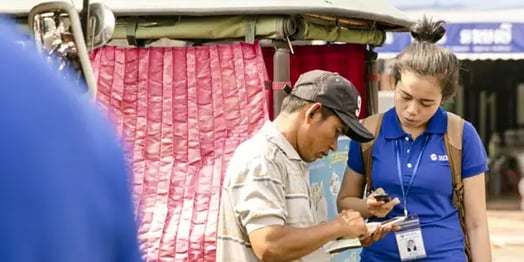Swedish/British company Bima just raised $97m from insurance giant Allianz to bring “microinsurance” to developing countries with smaller economies.

The deal puts Bima at a $290m valuation including debt, based on the idea that, if the coverage fits, more people will insure it.
What’s microinsurance?
Essentially, it’s the idea that coverage should be “the right size” for the economy where it’s sold.
Bima currently operates in 14 emerging countries, including Ghana, Bangladesh, and Haiti, where 93% of Bima’s customer base make less than $10 a day.
But the cost of living is much lower there as well: the average rent for a 1-bedroom outside of downtown in Accra, Ghana is about $147/month.
That means Bima’s plans have smaller coverage (their life insurance payouts max out at $1k when a family member dies) and in turn, smaller premiums (as little as $0.02 a day).
Insurance is so hot right now
Property insurance company Lemonade just raised $120m from Softbank after hitting 90k users in their first year of operation, blowing their growth targets out of the water.
Microinsurance is attractive to providers looking to expand globally into countries that are difficult to break into with traditional coverage (75% of Bima’s target audience have never had insurance).
And it seems like a promising industry: the world’s second-largest reinsurer, Swiss Re, pegs the global microinsurance market around $40B.
It’s not just a huge market…
It’s an important social issue for people without a fiscal cushion, and for whom a setback like an illness or family death could be financially devastating.
Bima provides security for these users by drastically lowering the barrier to entry for coverage, allowing customers to sign up via mobile phone, and even pay without a bank account, using prepaid policies.
When business and social incentives align: that’s a beautiful thing.
